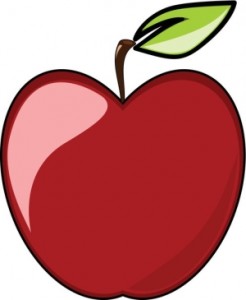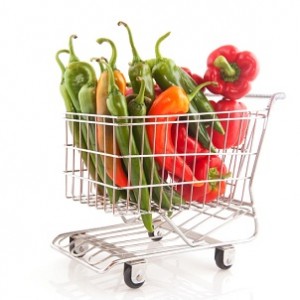By Dr. Michael Wald
An apple a day is not enough…and never was!
 More than a few studies have alluded to the fact that our fruits and vegetables these days are less nutritious than they used to be. A number of environmental factors have impacted the nutritional quality of a large variety of crops including fruits, vegetables and grains, including acid rain, over-harvesting of the soil, and organopesticide contamination. The reduced nutritional content of foods, higher acid and pesticide contents are all known to increase one’s risk of developing various diseases such as multiple sclerosis, lupus, amyotrophic lateral sclerosis, hypothyroidism, osteoporosis and various cancers.
More than a few studies have alluded to the fact that our fruits and vegetables these days are less nutritious than they used to be. A number of environmental factors have impacted the nutritional quality of a large variety of crops including fruits, vegetables and grains, including acid rain, over-harvesting of the soil, and organopesticide contamination. The reduced nutritional content of foods, higher acid and pesticide contents are all known to increase one’s risk of developing various diseases such as multiple sclerosis, lupus, amyotrophic lateral sclerosis, hypothyroidism, osteoporosis and various cancers.
Acid rain and reduced nutritional content of soil
Acid rain has negatively affected crops and caused nutrient loss in the soil. This has caused a loss of nutrition that is taken in by growing crops. We eat nutritionally depleted crops, which cause us to become nutritionally depleted. Inadequate nutritional intake is associated with an increased risk of developing virtually all chronic degenerative diseases including cancers, arthritis, multiple sclerosis, migraines, infertility, and inflammatory bowel disease.
Over-harvesting
The soil has been over-harvested, meaning that over years of use and turnover of soil it has become depleted in nutrition. All crops growing in depleted soil are depleted in nutritional content. The pesticides and herbicides used in group processing both directly and indirectly affect nutritional content. Foodstuffs now are transported great distances, resulting in a loss of nutritional content along the way, specifically if the foods are not frozen during transit. Freezing foods help to maintain their nutritional content. The time from the harvesting of foodstuffs to their consumption at the table results in nutritional loss. The longer the time from harvest to consumption is, the lower the nutritional content. The overall production of more crops due to advancement in technologies has resulted in crops that are diluted in nutritional content; a greater yield of crops derived from the same soil will become progressively more and more depleted.
Goodbye selenium, hello cancer!
People should be concerned about nutritional depletion of foodstuff because we as consumers will, and have, become nutritional deficient. The levels of selenium in soil are estimated to be entirely absent within the next five years. This will increase cancer risk and human susceptibility to oxidative diseases (virtually all degenerative diseases are oxidative in nature).
 Foods close to home
Foods close to home
We can get more nutrition out of fruits and vegetables, even those that are inherently deficient based on what I have written above, by consuming foods closer to the time of harvesting as opposed to waiting long periods. Choosing to eat frozen foods as opposed to non-frozen (fresh) is best, because non -frozen foods lose nutritional value faster than frozen. This does not mean that fresh foods should not be consumed.
Cooking is not just cooking
Cooking foods more slowly reduces nutrient loss. Cooking foods at lower temperatures also reduces nutrient loss. Chewing foods thoroughly to break the plant cell walls of fruits and vegetables releases nutrients. Choose organically grown foods that contain less toxic residues that actually require nutrients for the body to process and detoxify them. We can choose to consume foods that are grown locally as smaller farms are not as over-harvested, so the soil has a higher nutrient content. Canned foods are the least healthy, generally speaking.
– Dr. Michael Wald, aka The Blood Detective, is the director of nutritional services at Integrated Medicine of Mount Kisco, located in Westchester New York. He has appeared on ABC World News Tonight with Diane Sawyer, Channel 11 PIX, Channel 12 News, CNN, The Food Network and other media outlets. Dr. Wald earned the name Blood Detective for his reputation to find problems that are often missed by other doctors. He earned an MD degree, is a doctor of chiropractic and a certified dietician-nutritionist. He is also double-board certified in nutrition. He has published over a dozen books with three additional titles due for release late 2013 including: Frankenfoods – Genetically Modified Foods: Controversies, Lies & Your Health and Gluten-A-Holic: How to Live Gluten Free and the Blood Detective’s Longevity Secrets. Dr. Wald can be reached at: www.intmedny.com or www.blooddetective.com or by calling: 914-242-8844.
